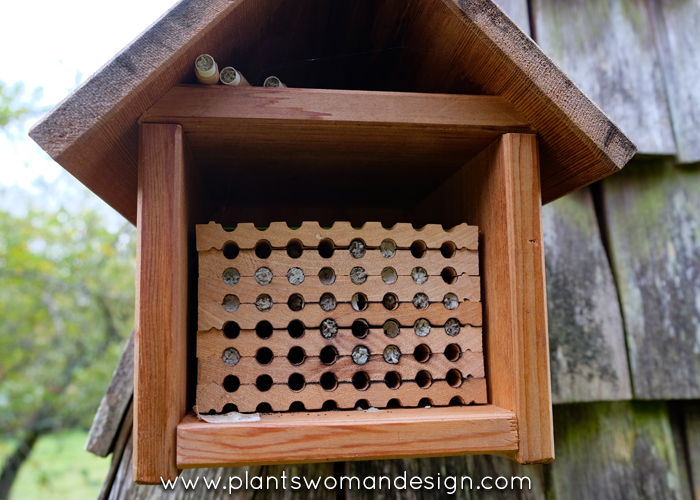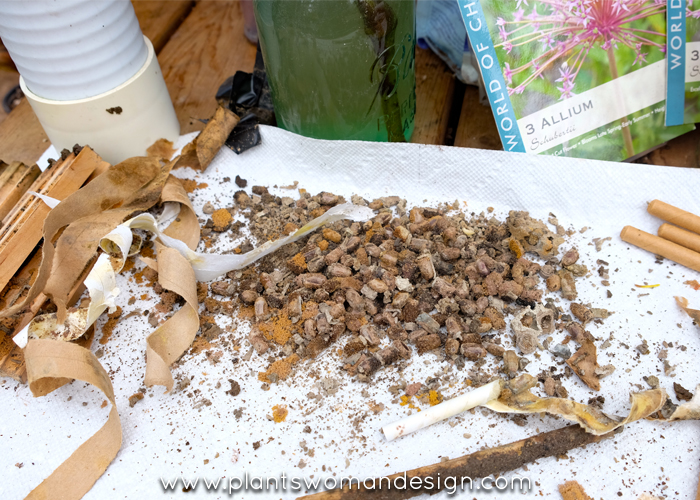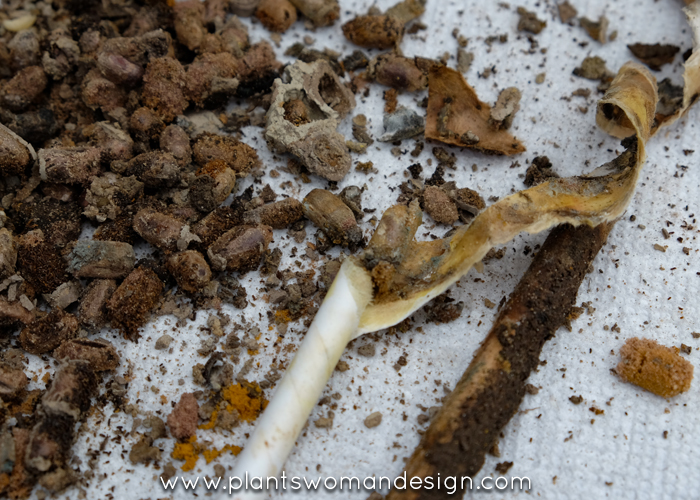This has been a good year for my mason bees and they were fabulous in my garden. The apple trees were loaded with fruit and the veg garden did well. Now It is time to harvest the bees again this year. One of things I did different this year was to use cardboard tubes along with the wooden trays. The tubes were added next to the tray in the house. They were a little hard to get out because they were wet and swollen with rain. The little bees also went behind the nesting block and built quite a metropolis out of mud. Not having seen this before I was a little worried about the possibility of mud houses being wasps instead of bees. A quick call to Crown Bees assured me that these were industrious bees that created a little adobe home because they ran out of room in the tubes. The solution? More tubes of course. I had already tripled the number from last year!
A few little known facts about mason bees (or maybe they aren’t):
Yes, you should harvest the bees every year. Pollen mites will eat pollen then attach themselves to the bee and be reintroduced to the tubes when they come back to lay eggs. Harvesting them assures clean tubes and no mites on the cocoons.
Yes, you can have two harvests each year. When the tubes fill up in the summer you can pull them out and put in clean ones. It won’t be quite time to actually harvest them so Crown Bees recommends hanging them outside in a Bee Guardian Bag so they have the warmth to mature but are protected from predators.
No, don’t use drilled wood, plastic straws, or bamboo straws. These are hard to clean and harvest the bees. If you have some already there is a special technique using a paper bag that allows them to leave the nesting material and not be able to come back to it. Providing the new tubes nearby will insure that they will move into the new accommodations instead of old nesting material.
No, one size does not fit all. Crown Bees is now selling different sized tubes to encourage small native bees to nest with the other bees. They are hearing from other gardeners about the bees that are nesting in smaller holes and now provide good nesting material to encourage native bees to hang out with the ones you bought or the community that you are fostering each year.
Mason Bees: bee keeping made easy, and stingless. Everyone should get involved.




